Just had a colonoscopy. Do you think what you eat matters? Exercise?
nicole___
2 years ago
last modified: 2 years ago
Featured Answer
Sort by:Oldest
Comments (65)
Related Discussions
Just finished my new veg. garden, what do you think about design?
Comments (12)Okay, here's my critique. You probably did not design it, actually, you just built it--a big raised bed with a fence around it. Ideally, I would use a completely different design for a fully-fenced garden as for one not fenced--both as to dimensions and where the garden actually "is" with regard to the house and to the fence and to any paths or stepping stones that will be needed. However, you were able to take some advantage of where you attached the fencing to the perimeter. You can retrofit it now with some kind of step stones or paths in order to try to work in it. It's too close to the house so you lose the ability move very well back there or to work freely through the back fence or to run a wheelbarrow back there. You lose a little bit of some space advantage you could have had to let larger plants (indeterminate tomatoes; peas and beans) which like to spill out over the back sides--but you could still place them at the ends. These types of vegetables are really fun to grow in places where you can just saunter up to pick them at eye level (I am revealing my middle-agedness here). Of course, it isn't that much fun to try to work through the squares of fence, so you will mostly want to work from inside. If you put a path through the middle then will still have a few feet on either side for your crops. You can have a lot of fun with this garden regardless and learn a lot about growing different types of stuff. I always feel pressure to try to put as much as possible in the small veggie garden, but sometimes that can take the fun out of it (pressure! pressure!) as much as it can be fun. But if you do check out some of the photos and articles on small-space or square foot gardening, they will have some helpful tips on where to place different vegetables with regard to each other (height and growth patterns, time to maturity, multi-season planting). I would work out your pathways, and plan on enjoying plenty of tomatoes (next year) , herbs, and lettuces. In your zone, you can plant cilantro and parsley now and it will grow all winter and thaw out great after freezes. Also all kinds of lettuces and greens as suggested above....See Morewhat do you do for exercise?
Comments (17)Interesting to hear what you all are doing. Minnie, I don't think I'm old - just older than I used to be. I completely subscribe to your philosophy of what old is!! I would like to make it a priority to do more in the way of exercise though. I generally do something 4-5 days a week but I'd really like to do more. It would be great if I did two kinds of exercise per day or something every day then I could get back into the ball routine which was really great for the core. I was doing that for a while but it just became too much - basically work, come home, exercise, grab something to eat, go to bed, repeat. I kind of like some down time. Well, we shall see if I become motivated to do something about this.......See MoreGoldilocks had it easy. What do you think of these choices?
Comments (11)Yes, our water is really hard and seems to eat the insides out of appliances. We're on our 3rd water heater, 3rd dishwasher, and 2nd washer in the 15 years we've been here. We've come home to water spewing out of various appliances a couple of times. That door on the back wall is the water heater closet. Our current water heater has lasted longer than any of the others, and I told dh the other day we should probably replace it now just because we're probably living on borrowed time with it. The washer and dishwasher are fairly new. And I really hope to be out of here before they go. Maybe after speaking ill of the water heater, I should stay up all night too. I'm almost there now anyway....See MoreKnow what I think! What do you think? (very long)
Comments (28)Jennmonkey, the $30 comment was in the context of the story - that she was always asking for more. I didn't say anything like the rest of what you mention. I don't know where you got it from or why you used it to defend Lori. Lori didn't even say anything like that. I said it to the woman because I paid her $25 for the run, but she was asking for more. There is nothing in this story about the size of jobs. Nor is what Lori indicated that I am wasting money and time when I can do them myself. It came from nowhere except her own intention. NyceFarm, you and Uxorial asked the same thing, which is a good question. Because I never saw her at work or saw a paystub, all I can say is I have called her in the wee hours of the morning only because I knew she was at work. At her house, her husband answers the phone if I call after 11pm to let me know he hates calls at that hour LOL. I wouldn't dare call their house at 1 or 2 in the morning. A couple times she came around 3 or 4am to pick up that morning's deliveries. That's the time she got off work on those nights and came here so as not to have to make the trip again. I'm only 3 or 4 miles off her route, whereas she lives quite a ways away. It was better for her to come at that hour than to come back this way at 8am. Also, she directed me to a website for certification last year. She needed me to download some forms because she didn't have a computer. I realize none of that is proof though. So, I guess the answer is I really don't know, but I can't see all the charades either. LindaKathy, nope she didn't pay cash. She paid by debit card. I expected she would stop at the place and pay, but she preferred not having to stop. I wouldn't ask anyone to use their credit card, but that she did was fine with me. She called with the confimation number and brought the balance of the money the next day, less the $150. This was three weeks ago. Is that you were asking? Kathleen, that makes a lot of sense. As far as being tired, she fell alseep on my sofa or laid down in the boys' room several times after getting off work. One morning, she got off at 7 and was supposed to come here to pickup an order. It was to be delivered at that funeral home two miles from her house. She didn't show up and called around 8 to tell me she fell asleep in the nursing home's parking lot. I could understand that happening, knowing how often I work through the night. However, I don't want to give the impression that she was working so much for me. As I mentioned, business was way down the last year, so I didn't have to call her all that steadily....See Morenicole___
2 years agolast modified: 2 years agonicole___
2 years agolast modified: 2 years agonicole___
2 years agolast modified: 2 years agoMDLN
2 years agoZalco/bring back Sophie!
2 years agolast modified: 2 years agonicole___ thanked Zalco/bring back Sophie!Zalco/bring back Sophie!
2 years agolast modified: 2 years agonicole___ thanked Zalco/bring back Sophie!Elmer J Fudd
2 years agonicole___
2 years agolast modified: 2 years agonicole___
2 years agonicole___
2 years agolast modified: 2 years ago
Related Stories
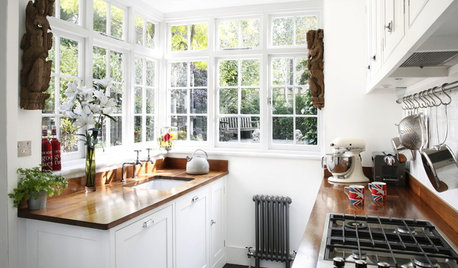
SMALL KITCHENS10 Things You Didn't Think Would Fit in a Small Kitchen
Don't assume you have to do without those windows, that island, a home office space, your prized collections or an eat-in nook
Full Story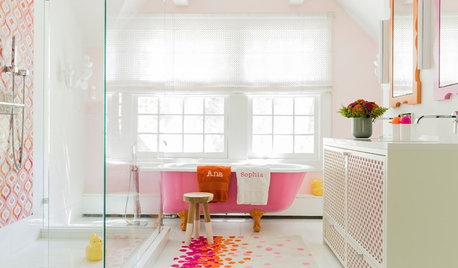
LIFEThat’s a Talker: 10 Stories You Had Lots to Say About This Year
The world’s ugliest color, tubs vs. showers, and TVs over fireplaces had readers talking in 2016. Tell us what you think
Full Story
PETSSo You're Thinking About Getting a Dog
Prepare yourself for the realities of training, cost and the impact that lovable pooch might have on your house
Full Story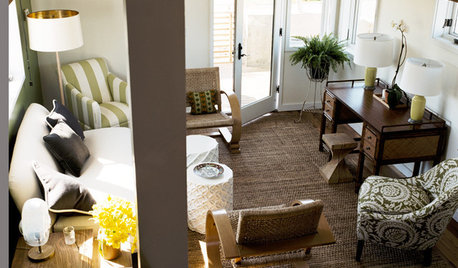
SMALL SPACESDownsizing Help: Think ‘Double Duty’ for Small Spaces
Put your rooms and furnishings to work in multiple ways to get the most out of your downsized spaces
Full Story
If the Black Swan Had Different Sets....
Design Eye on the Oscars: What If Nina Had More Symmetry and Better Light?
Full Story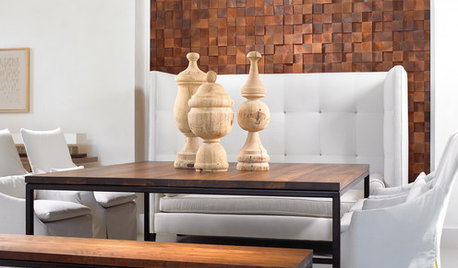
DINING ROOMSBenches: Not Just for Picnics Anymore
Add Character and Clean Lines with a Stylish Bench at the Table
Full Story
ARCHITECTUREWhy Authenticity in Architecture Matters
Is your home's exterior making a promise it doesn't keep? Learn why integrity and consistency are essential for architectural success
Full Story
DREAM SPACESJust a Few Things for the Dream-Home Wish List
A sunken hot tub, dedicated game room, tree house, hidden wine cellar and more. Which of these home luxuries would you like best?
Full Story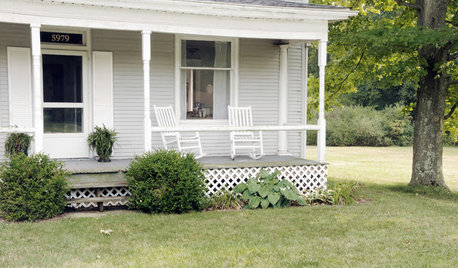
LIFE9 Ways to Appreciate Your House Just as It Is
Look on the bright side — or that soothingly dark corner — to feel genuine gratitude for all the comforts of your home
Full Story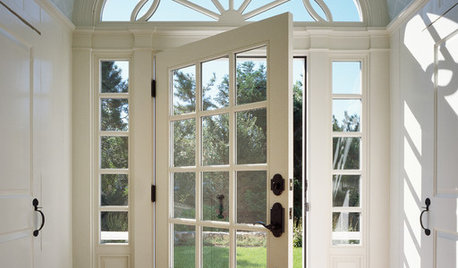
REMODELING GUIDESThe Good House: Little Design Details That Matter
Tailored trim, cool counters and a nice weighty door — such details add so much to how a home feels to the people inside
Full Story





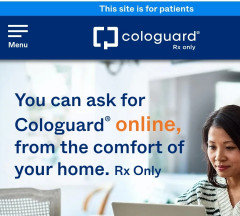


rob333 (zone 7b)